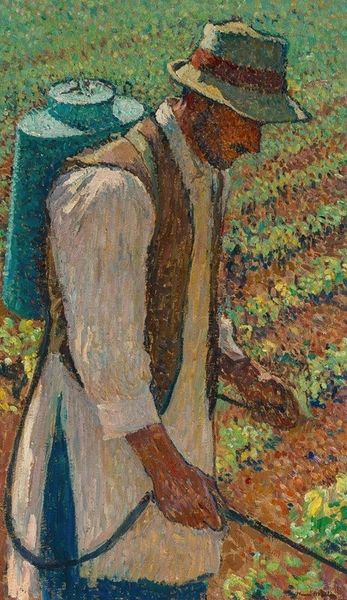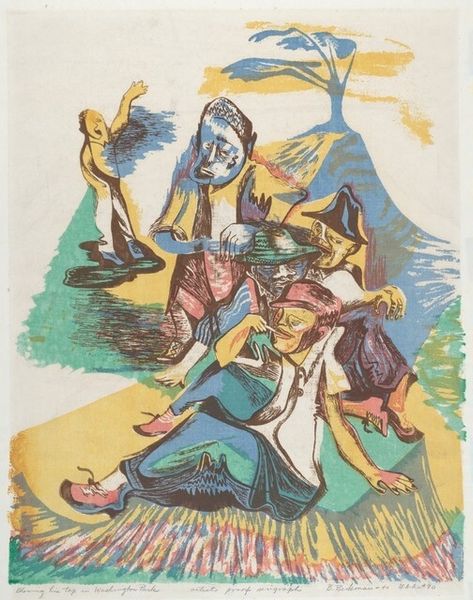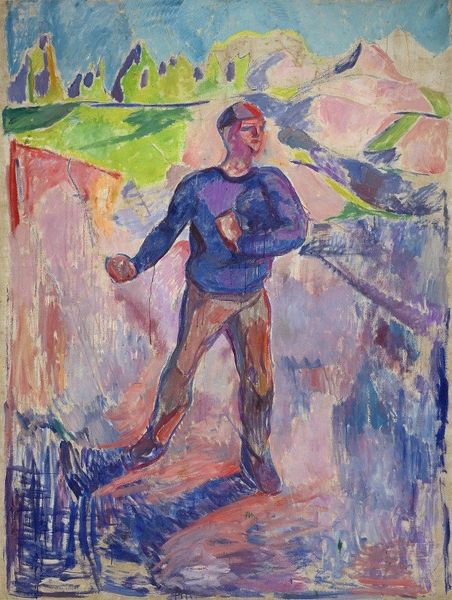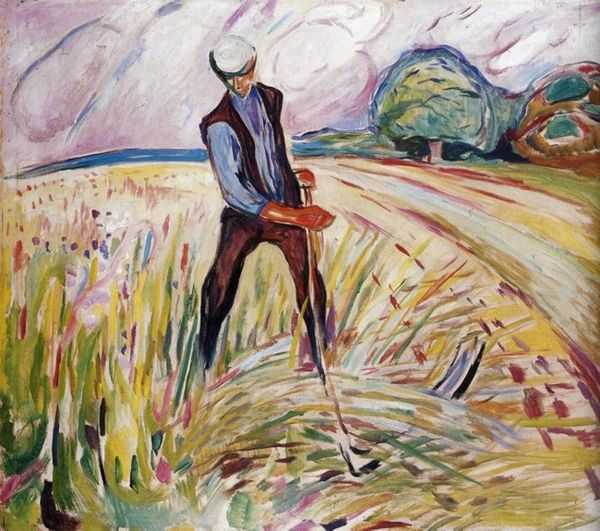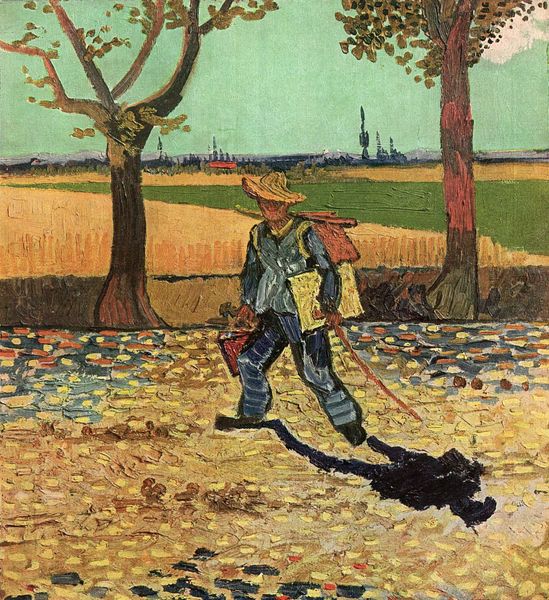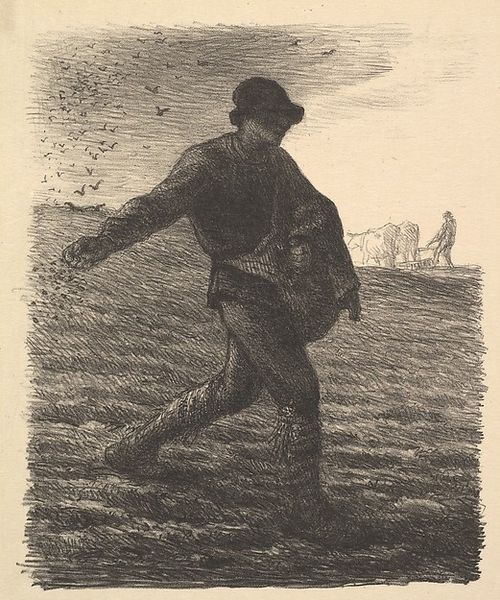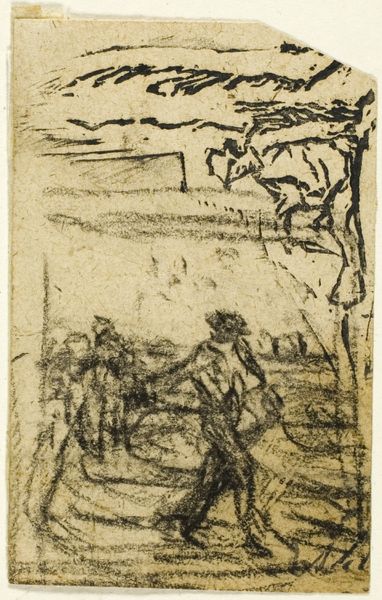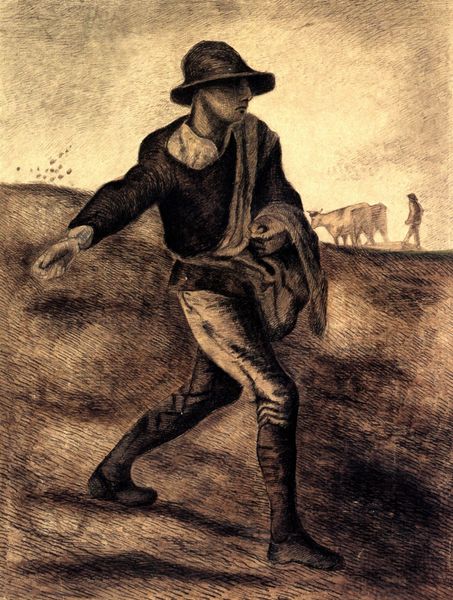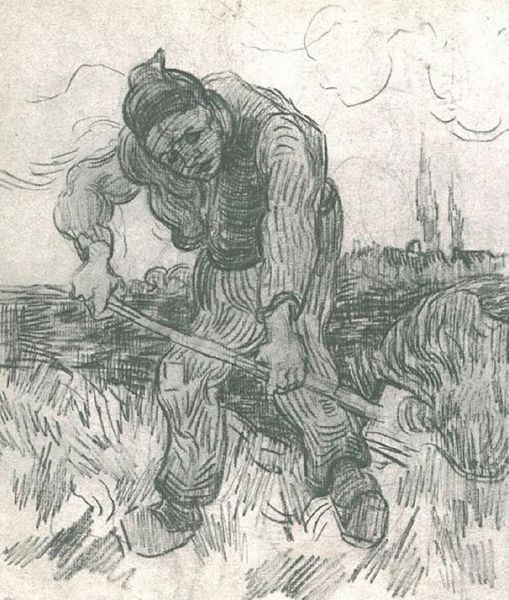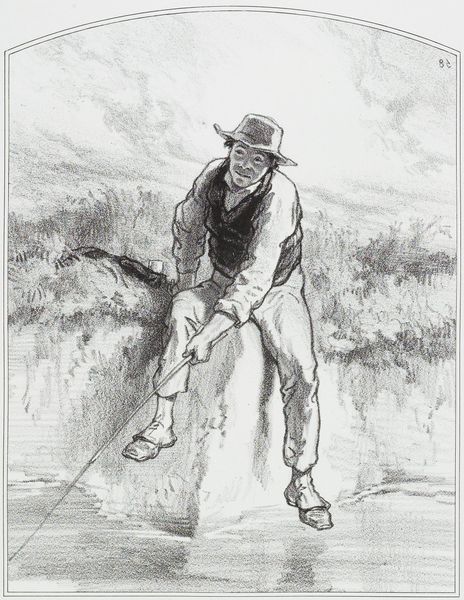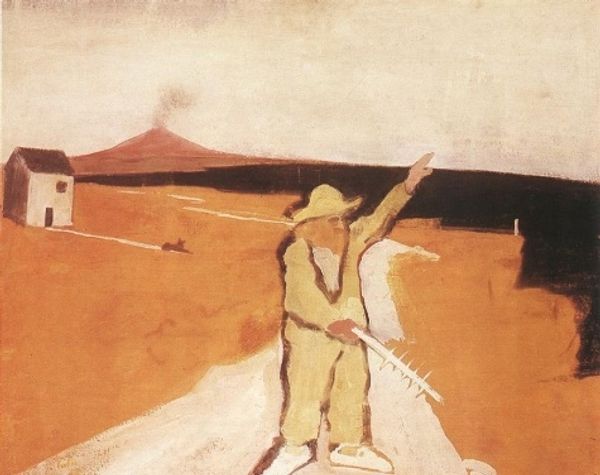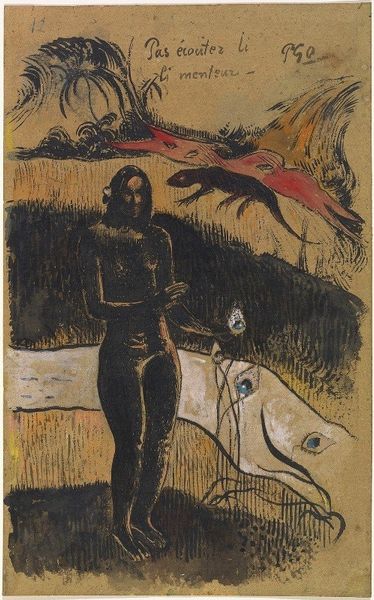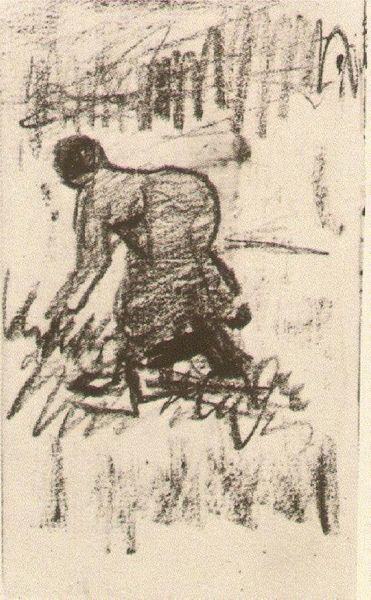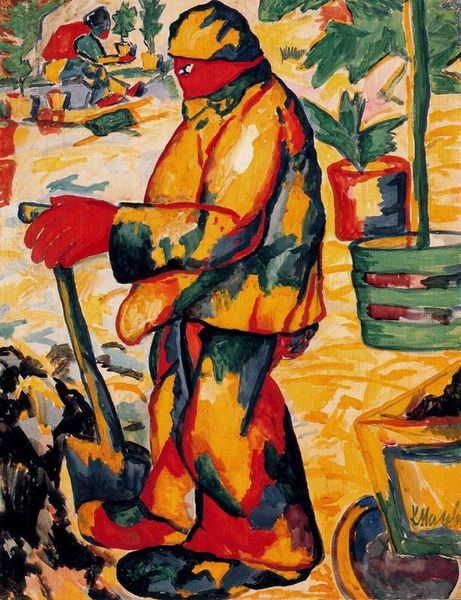
oil-paint
#
oil-paint
#
landscape
#
figuration
#
oil painting
#
coloured pencil
#
watercolour illustration
#
post-impressionism
#
watercolor
#
realism
Dimensions: 80.8 x 66 cm
Copyright: Public domain
Curator: Welcome. Here we have Van Gogh’s 1889 work, "The Sower (after Millet)," crafted with oil paint. Editor: The painting has a wonderful rawness. The texture alone—all those swirling blues and browns—immediately grabs your attention. It speaks to the very hands-on process of agriculture, doesn’t it? Curator: Indeed. It's fascinating how Van Gogh appropriates Millet's iconic image but injects it with his distinct Post-Impressionistic fervor. Consider the social commentary inherent in both renditions. Millet romanticized peasant life, yet Van Gogh brings an almost desperate energy. Editor: Right. Look at the material implications. Van Gogh’s impasto, that thick layering of paint, gives the whole canvas a tactile, almost sculptural quality. It transforms a simple agrarian scene into a weighty object, almost like tilled earth itself. Curator: And his rendering reflects an evolving art world—one increasingly fixated on subjective expression. The sower becomes less about rural virtue, and more about Van Gogh’s internal state, amplified by the socio-economic tensions of late 19th-century France. The rise of industrialization and its impact on agricultural labor come to mind. Editor: Absolutely. He’s foregrounding labor, isn’t he? Showing its grit, the materials involved, the sheer physicality of the act of sowing. The brushstrokes are doing the work of the sower, mirroring his actions. You feel the artist at work when you examine the oil's texture, so close, and almost harsh in its appearance. Curator: A truly interesting viewpoint to link production and imagery. And it also demonstrates the power of art to reflect the anxieties of its time. Editor: Ultimately, it brings into stark view both artist and subject as laborers within separate, yet intertwined systems. The raw material for the one is food, the other art. I didn’t realize just how much was seeded within this painting. Curator: Indeed, and it continues to sprout meaning, even now.
Comments
No comments
Be the first to comment and join the conversation on the ultimate creative platform.
